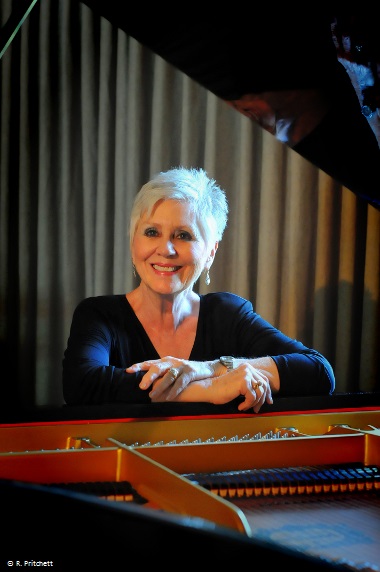 | ||||||
Thoughts on Selecting a Piano Teacher
Thoughts on Selecting a Piano Teacher
I suggest that the selection of a good piano teacher is much more than a matter of “luck” or happenstance. Indeed, as with any discipline, there are specific characteristics and qualifications that may well be shared by all competent teachers. Such characteristics and qualifications indicate a passion for both the music and instruction in the art to others. If you are serious about selecting a competent piano teacher, it is important that you consider only qualified, professional teachers; not one for whom teaching is merely a "hobby." The likelihood that a "hobbyist" has the experience, teaching tools, and well-developed practices and policies is very remote. Usually, tuition cost with a competent, professional teacher is no more than that with an unqualified teacher.
First (and this may seem a bit obvious), the teacher should be able to play! A competent teacher must be a competent pianist. The teacher should be able to play with a style, verve, vitality, and musicality that is easily recognizable, even to the “untrained ear.” Further, the teacher should be able to sight read unfamiliar music without hesitation. Likewise, the teacher should possess a broad repertoire of memorized music. Only a teacher who is a skilled practitioner in the art can adequately instruct in fingering, touch, phrasing, and dynamics. When selecting a piano teacher, have the prospective teacher play for you.
Second, the teacher should have teaching experience. If you expect to learn, you shouldn’t be among your teacher’s first students. Drawing on that experience, the teacher should be able to verbalize his/her expectations of the student, and should be able to understand your expectations of a teacher. An experienced teacher will be able to help you understand if your expectations and the teacher’s expectations are a good “match.”
Third, the teacher should have well-established methods of communicating to the student, and in the case of young students, communicating with the student’s parents. Carefully review the “tools” by which the teacher provides important information about assignments and practice.
Fourth, the teacher should have a well-developed, comprehensive written Studio Policy. The teacher should thoroughly review their policy with prospective students, and a copy of the policy should be given to all students or students' parents.
Fifth, the teacher should provide a suitable studio. Most piano teachers teach from their own “home studios.” Even so, the studio area should be clean, safe, and attractive, conducive to concentration. The teacher should provide an excellent instrument, properly maintained and well-tuned.
Sixth, the teacher should be serious about teaching. As with the first point, this may seem obvious, but there always remains the possibility that teaching piano is an “afterthought,” lacking both discipline and direction. For “real” results, find a “real” teacher.
Have you ever heard the old saying, “Those Who Can, Do; Those Who Can’t, Teach?” We have probably all heard someone say it; perhaps we’ve even said it ourselves…But is it true?
I think not. Beethoven had students. Chopin had students, Franz Liszt had students. The great Renaissance painters had studios full of students (although they were probably more likely to call them apprentices).
The arts have a long tradition of master artists passing their art and their craft down to the next generation. Some are highly selective, picking trained students who come to them with a proven record of practice and achievement. Others prefer to work with young beginners, in the hope of instilling competence and artistry from the start. Some work with both beginners and the more advanced.
The history of artistic endeavor is also the history of teaching.
I provide piano lessons in my home studio in Hurst, Texas Monday through Friday each week. My ‘after school’ teaching hours are from 3:30 p.m. to 7:00 p.m. Morning or mid-day lesson times are easily arranged for adults or home-schooled students. During their lessons, all students play a Yamaha C7 Conservatory grand piano, recognized to be today's most widely 'professionally played' piano. I provide written remarks, observations, and specific ‘work on this’ assignments at each lesson. Developed over years of piano teaching, this ‘Weekly Assignment & Progress’ sheet keeps the student properly directed to ensure progress.
Monthly tuition is determined by the number of lessons scheduled for the student each month. At the end of each month, I will note on the ‘Weekly Assignment & Progress’ sheet the tuition amount due for the coming month.
I have found it beneficial to personally meet all prospective students; and - in the case of young students - to meet with the prospective student’s parents. This allows a thorough review of my policies and it provides an opportunity for me to meet the student and to understand the student’s expectations and goals.
To schedule an appointment at which we can discuss piano instruction for you or your young student, please call me at 817-282-3377.
I applaud your interest in piano instruction! Music instruction - and especially piano instruction - is a valuable investment in lifelong enjoyment. Fortunate indeed is the person who, through competent instruction and personal discipline, is able to reach his or her musical potential. Whether that musical potential is playing simple melodies for personal enjoyment or performing professionally, the rewards are great. I welcome the opportunity to discuss piano instruction for you – or your young student.
Linda Pritchett
Linda Pritchett
Lessons in my piano studio
Lessons in my piano studio
Copyright 2009 ~ 2022 Linda Pritchett Piano Studio, Hurst, Texas
Conveniently Located for Students in Hurst, Bedford, Euless, Colleyville, Grapevine, North Richland Hills
For more information, call 817-282-3377
For more information, call 817-282-3377
